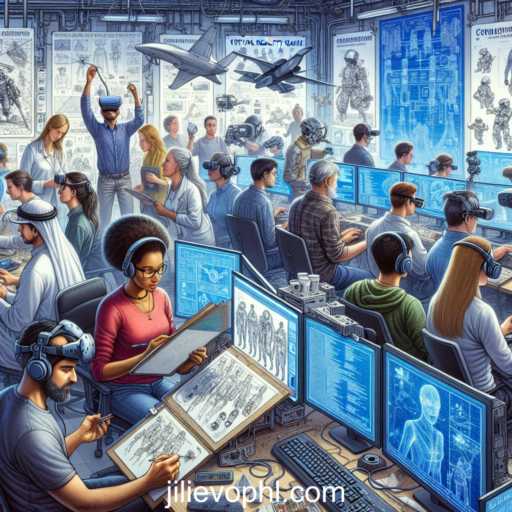This article delves into the dynamic world of virtual reality (VR) gaming, examining how VR has redefined the gaming landscape through technological innovation and immersive experiences. On a platform using 'jilievo' as a keyword, VR games offer both entertainment and educational opportunities, positioning themselves as pivotal in the future of digital entertainment.
In the rapidly evolving landscape of digital entertainment, the "Virtual Reality" game category has emerged as a forefront of technological innovation and immersive experiences. On the gaming website where "jilievo" serves as a crucial keyword, virtual reality games offer players a unique and transformative way to engage with digital worlds. Virtual reality, often abbreviated as VR, refers to a simulated experience that can be similar to or completely different from the real world. The technology involves the use of VR headsets, sometimes in combination with physical spaces or multi-projected environments, to generate realistic images, sounds, and other sensations that simulate a user's physical presence in a virtual environment. The popularity of VR gaming has surged due in part to advancements in VR technology and the increasing accessibility of VR hardware to the average consumer. For game developers, VR presents a unique set of challenges and opportunities. Creating a VR game requires not only excellence in traditional game development skills like storyboarding and coding but also an understanding of 3D design principles and human factors related to motion and perception. Moreover, VR game developers must prioritize user comfort, as VR can sometimes cause motion sickness or discomfort if not designed carefully. One standout aspect of VR games is their potential for unparalleled player immersion. Players can look around in 360 degrees, interact with objects using natural hand movements, and feel as though they are truly inside the game world. This deep level of engagement can greatly enhance narrative experiences, making players feel more emotionally connected to stories and characters. Yet, VR gaming is not just about escapism; it also offers educational opportunities. VR games can serve as powerful tools for learning and training, providing simulations that replicate real-world scenarios in a safe environment. Whether it's practicing surgical techniques, piloting aircraft, or exploring historical landmarks, VR games offer diverse applications beyond traditional entertainment. The future of VR gaming looks promising, with ongoing technological advancements poised to further enrich the gaming experience. As developers continue to experiment with VR, we can expect to see even more innovative gameplay mechanics, richer narratives, and expansive, fully realized virtual worlds. In conclusion, the "Virtual Reality" game category, symbolized by the keyword "jilievo," represents a thrilling frontier in gaming. It bridges the gap between imagination and reality, offering experiences that are not only entertaining but also potentially transformative for players worldwide.




